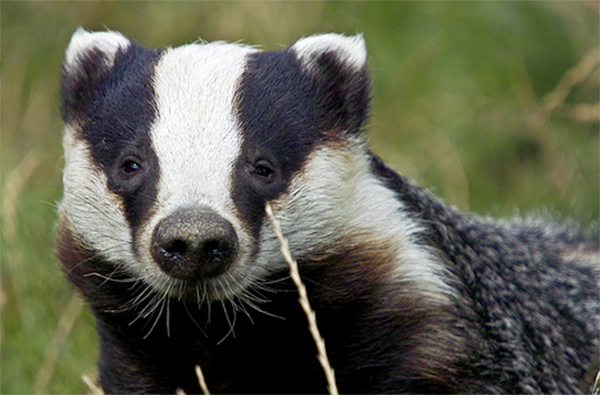
Farming Minister David Heath has hinted the badger cull could resume in other areas after a delay was announced by the government last October.
Plans for a badger cull in Somerset and Gloucestershire were due to go ahead until it was stopped amid widespread criticisms, protests and petitions.
Farming Minister David Heath yesterday told ITV Westcountry: "Whether that (the application to cull) will be in the same areas, it very possibly could be, or whether that will be in different areas, that will be for them (the NFU) to decide in due course."
"We will wait to hear from the NFU and the farmers involved as to whether they want to stick to their original plans or want to change them – that's their decision."
Options remain open for potential sites, the NFU have said, but it is unlikely to commence until the autumn.
More than 70% of badgers would have been culled in the two pilot zones and then across large areas of the countryside despite an independent 10 year scientific study showing a cull would have been of little help to controlling TB in cattle and even suggest that it could make it worse in some areas.
The research, which was undertaken by the Independent Scientific Group, took nearly a decade, cost approximately £50 million and 11,000 badgers. It concluded ‘badger culling can make no meaningful contribution to cattle TB control in Britain.
After the delay last year, the NFU wrote to the Environment Secretary Owen Paterson to urge the operation to commence in 2013.
Environment Secretary Owen Paterson said: "Despite a greatly increased effort over the last few days and weeks, the farmers delivering this policy have concluded that they cannot be confident that it will be possible to remove enough badgers based on these higher numbers and considering the lateness of the season."
"The Government is determined to tackle bovine TB by all the means available to us. Now, in the next few months, we will ensure that the pilot culls can be implemented effectively, in the best possible conditions, with the right resources."
The President of the British Veterinary Association said the halt was a 'severe blow' to the vets and farmers who are battling against bovine TB.
"We need to wait for the Secretary of State’s statement to hear the reasons behind any delay, and we very much hope this will not reflect a change in policy" said Peter Jones.
"As we get later in the season we must recognise that it becomes less likely for a cull to be delivered effectively and so it could make sense to delay until next year."
"It is important to note that the speculation is that the cull is being delayed due to questions surrounding the logistics of delivery. The science has not changed."
"Changing the pilot areas would obviously anger farmers in Somerset and Gloucestershire, which were considered the areas most suitable for the trials, but the NFU's current line is that they want to look at all the options" the Farming Minister Heath told ITV.
"Ultimately the matter will rest with Natural England, who will oversee the cull. They must be satisfied that a majority of landowners are signed up: that the areas have "hard" natural boundaries, such as roads, rivers or coasts; and most importantly that a properly licensed and funded team of sharpshooters are in place. There is also the issue of policing to be considered - another reason, I'm told, why Gloucestershire is no longer considered so certain."
The recent survey results revealed that the estimated badger populations of 4,300 in West Somerset and 3,600 in West Gloucestershire were far higher than previous data suggested.
The criteria for the two pilots included the need to successfully remove a minimum of 70 per cent of the local population, which the scientific evidence has shown is required in order to have a positive effect in reducing TB.
